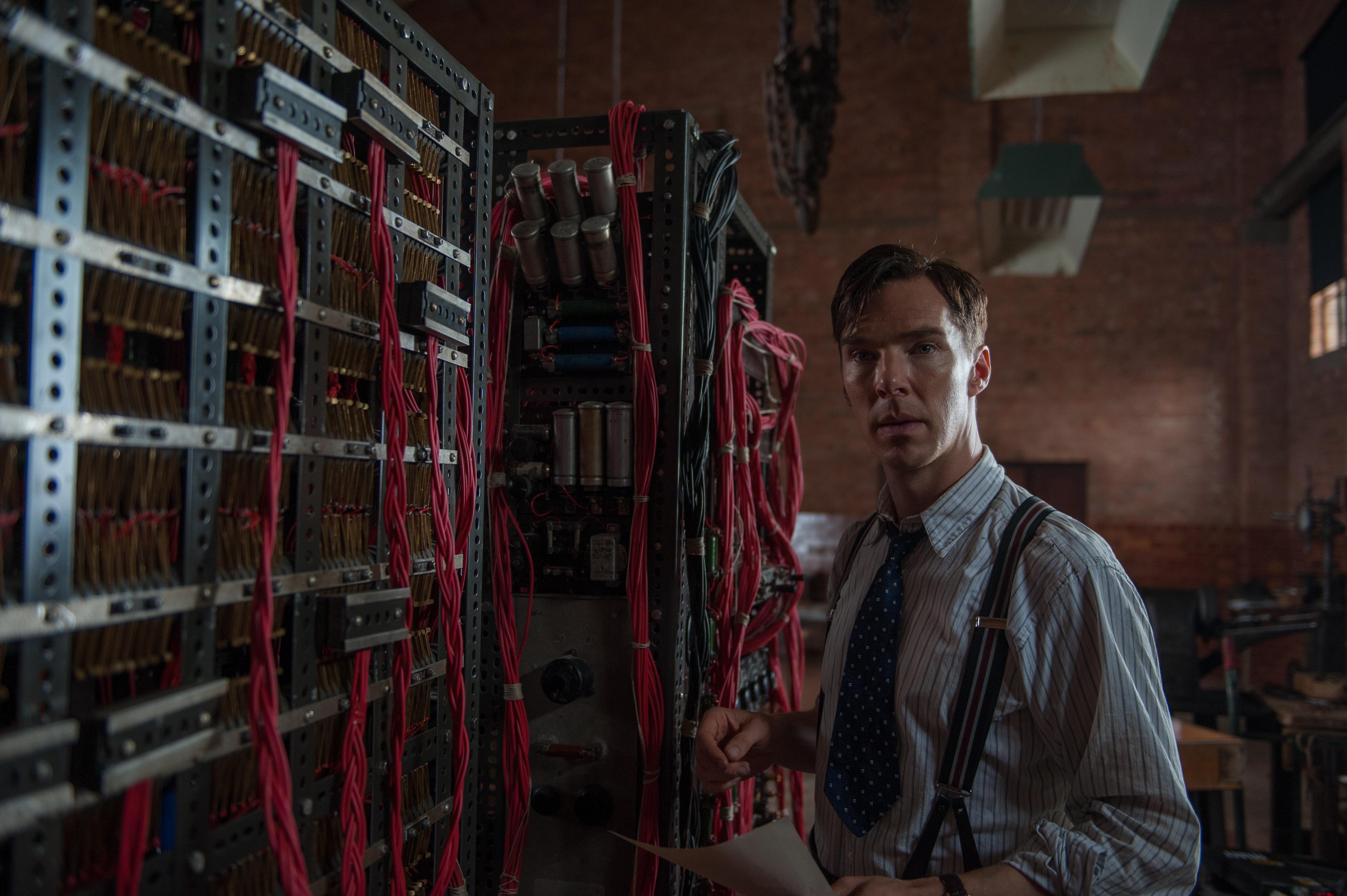Computers have become one of the primary pieces of technology in the world today. Every now and then, I would wonder: Who thought of the first one, and why? Modern computing started from a most noble cause: to create a machine to crack the German code and win World War II. The Imitation Game focuses on this computer’s creation as well as its fascinating creator, mathematician Alan Turing (Benedict Cumberbatch).
Early on, the war between Germany and Britain went very poorly for the English: German encryption with the Enigma device kept the Royal Army from stealing German messages. Turing was called upon by the English Army to decrypt Enigma, along with Hugh Alexander (Matthew Goode), Peter Hilton (Matthew Beard), and John Cairncoss (Allen Leech). Turing’s narcissism and direct nature generate power struggles which Turing wins, hiring Joan Clarke (Keira Knightley) to help crack the code. To do so, Turing elects to have a machine he postulated perform the operation. In doing so, Turing absorbs many secrets, including some personal ones that could severely damage his reputation in 40’s and 50’s England.
The Imitation Game presents the less showy but more cerebral side of the war. While battles are rousing and infinitely more cinematic, the strategizing can easily be made cinematic through stakes and urgency. The computer project is filled with team conflicts, with Turing’s antisocial behavior drawing ire from his team. Though the bonding is rushed a little, the race to break the code is rousing and captivating. What makes The Imitation Game special is what happens after Enigma is cracked (in 1941). Several moral dilemmas arise after the breakthrough. Characters deliver big moments as they decide how to handle the information presented to them. The big battles in The Imitation Game are political and personal, but the results of these battles ended up saving millions of lives and maybe costing some as well. In war, especially strategically, there are no easy answers.
The Imitation Game positions Alan Turing as a man of secrets: smart choice, since the man had many of his own. Turing’s personal story is nearly as interesting as the Enigma one. Turing is viewed here as a loner who doesn’t quite understand the normal, drawing inquisition from friends and superiors alike. In addition, Turing was a homosexual at the WRONG time, but because he knew what he was, he chose to keep quiet. Benedict Cumberbatch posits Turing as a man who knows who he is, but also knows the world will not understand. Cumberbatch’s Turing therefore is confident but guarded, and also willing to learn how to relate to people in ways he doesn’t understand. His post war struggles are truncated here for more story focus, but enough is presented via Cumberbatch’s superior acting to show how conflicted and world-worn Turing was by the end of his life.
This is Cumberbatch’s film, but the supporting players mostly do their part. Keira Knightley is requisitely appealing as Joan Clarke, though there is more presumably cut material I would like to have seen for her. The team members are all very good, especially Allen Leech and Matthew Beard, who gets the strongest emotional material in the film. Mark Strong is very enigmatic as the MI-6 director, and Rory Kinnear gets a couple good moments as the investigator for Turing’s digressions. Only Charles Dance is wasted here: he is channeling Tywin Lannister when he should be more human.
Alan Turing will hopefully be no longer be criminally unknown by the world after The Imitation Game. Benedict Cumberbatch captures the brilliance and world weariness of a fascinating individual, who left a giant mark on modern society. One note for the writers though: “Sometimes it is the people no one imagines anything of who do the things that no one can imagine” is not deep; ALL YOU DID WAS SWITCH ONE WORD FROM THE BEGINNING OF THE SENTENCE TO THE END OF THE NEXT SENTENCE.

